Medical Students Mobilize Swiftly to Organize Donations of Protective Equipment
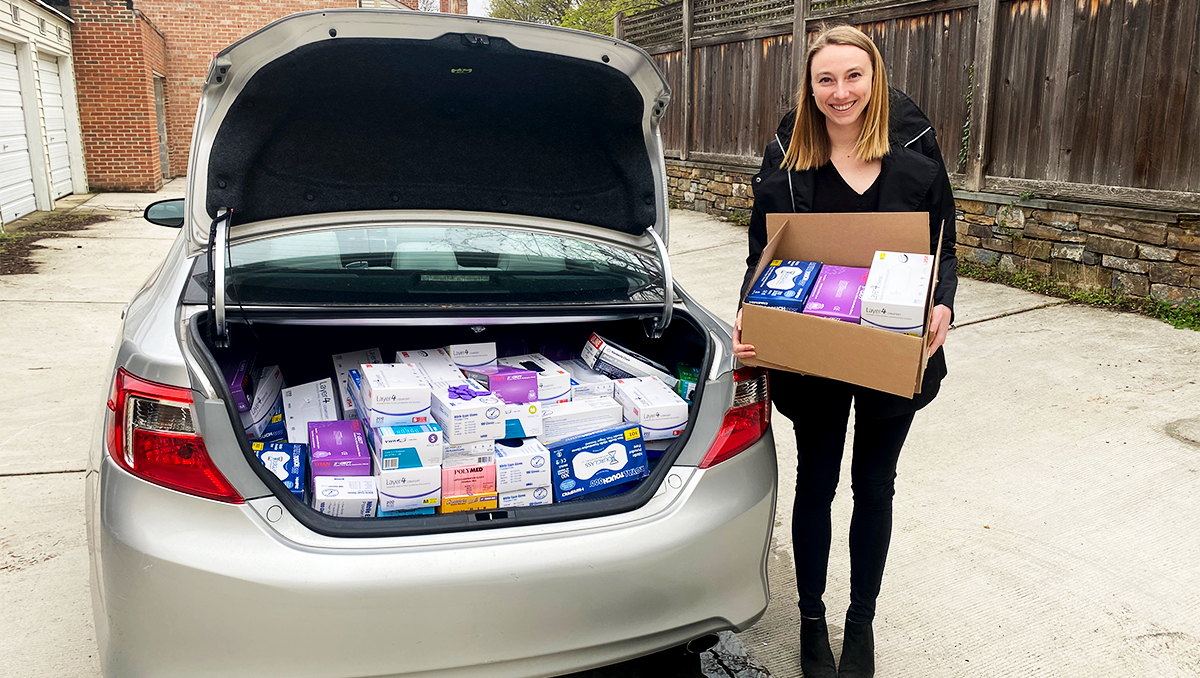
Posted in GUMC Stories | Tagged community outreach, COVID-19, public health, School of Medicine, service to others
(March 27, 2020) — Immediately upon learning that their clinical activities would be on hold due to COVID-19, a group of Georgetown School of Medicine students began checking in with one another: “What can we do to help?”
The recommendation from the Association of American Medical Colleges that medical schools suspend any activities involving student contact with patients was announced March 17, and Georgetown heeded the guidance.
Within a few hours, six third-year students, led by Hannah Day (M’22), had set their sights on mobilizing a national student-led movement to support those on the front lines of the pandemic response. By the next day, they had a mission statement, a new website, and a social media presence.
The movement, MedSupplyDrive, aims to collect unused personal protective equipment (PPE) from researchers, businesses and individuals around the country and coordinate donations to local hospitals with the greatest need.
“We understood that a lot of students like us were suddenly sitting on the sidelines during this crisis, wanting to be involved, and feeling downhearted that they were taken out of [clinical rotations] at a time when it felt essential to help,” said Zuby Syed (M’22), MedSupplyDrive’s coordinator of communications, outreach, and media relations and one of its founders.
“We believed that there was definitely something we could do and needed to do. Lives were on the line. We connected with others that felt similarly,” Syed said.
By activating their networks and nurturing social media channels, the organizers of MedSupplyDrive generated a remarkable response. In just over a week, the movement attracted more than 341 volunteers from 37 states, including volunteers from 41 undergraduate universities and 66 medical schools. The numbers are growing by the day, as news of hospitals facing intense shortages of PPE increasingly dominates the headlines.
The response from donors has also been resounding. MedSupplyDrive volunteers have collected PPE from research labs, tattoo parlors, construction and auto body companies, and individuals, among others. There is no minimum donation — even one box of masks will help, according to the organizers.
By the end of March, the MedSupplyDrive movement had established an international presence. Organizers met virtually with physicians and medical students from institutions in the United Kingdom interested in emulating the MedSupplyDrive model in their community settings and created a special section for the UK on their website.
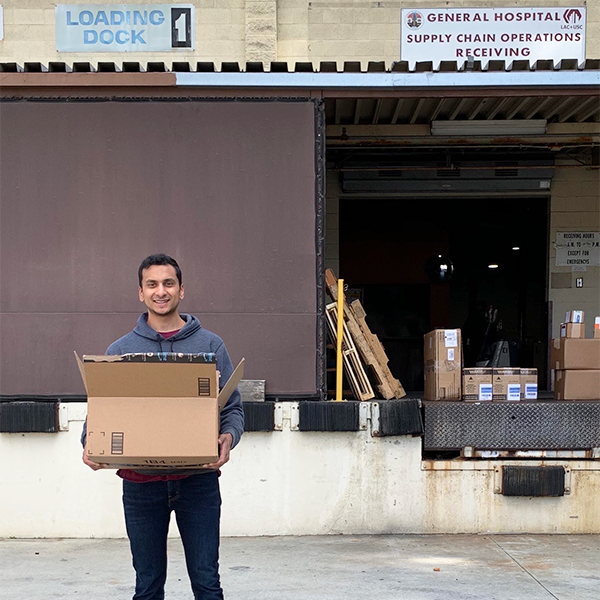
Lavan Rajan (M’22), Los Angeles regional coordinator for MedSupplyDrive, delivered donations to the supply chain operations receiving department of Los Angeles County + USC Medical Center in L.A. 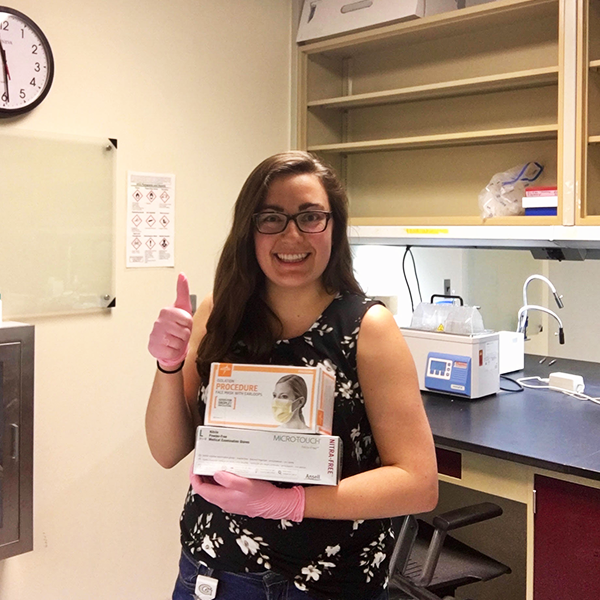
MedSupplyDrive Washington, DC, regional coordinator Victoria Smith (C’18) collected donations from the research lab of Georgetown’s Jeffrey Huang, PhD, where she is a research assistant. 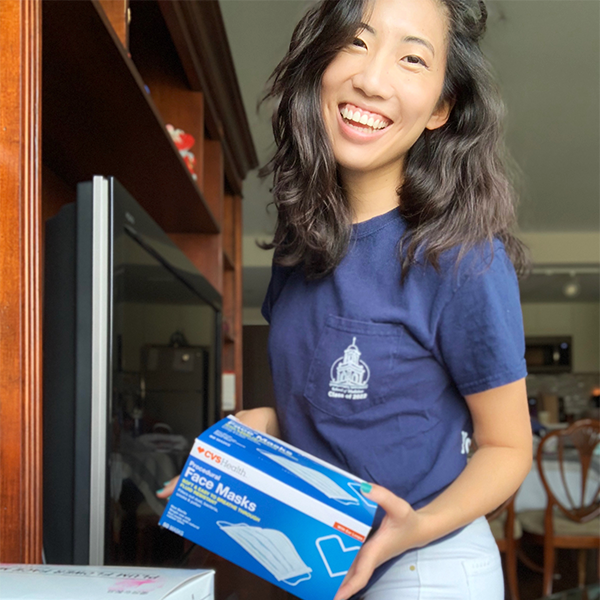
DC volunteer Cynthia Peng (M’22) collected PPE to be redirected to hospitals in need.
A Virtual Operation
With the exception of the pickups and deliveries of donated equipment, the entire operation is virtual.
All information from donors, health care providers or volunteers is managed centrally via the website. Regional coordinators around the country organize local volunteers and coordinate donations.
The streamlined donation process is geared to minimize human contact. Donors are advised on how to package their equipment or supplies. Then a volunteer arranges a “no-contact” pickup and takes the materials directly to a local hospital.
To stay connected, the board holds a daily Zoom meeting each evening and communicates throughout the day via a dedicated Slack channel.
“We have been communicating around the clock to keep up the momentum of our movement. We’ve tried to evolve very quickly because every day the picture of this pandemic is changing, and the need for PPE continues to grow, especially in certain cities,” Syed said.
The team analyzes statistics on the country’s coronavirus “hot spots” daily. They also adjust their social media outreach to ensure they are reaching the regions that are most in need.
Because the pace of work has been so intense, the board members spend time each day checking in on one another’s wellness, encouraging each other to avoid burnout by exercising and connecting with friends and family virtually.
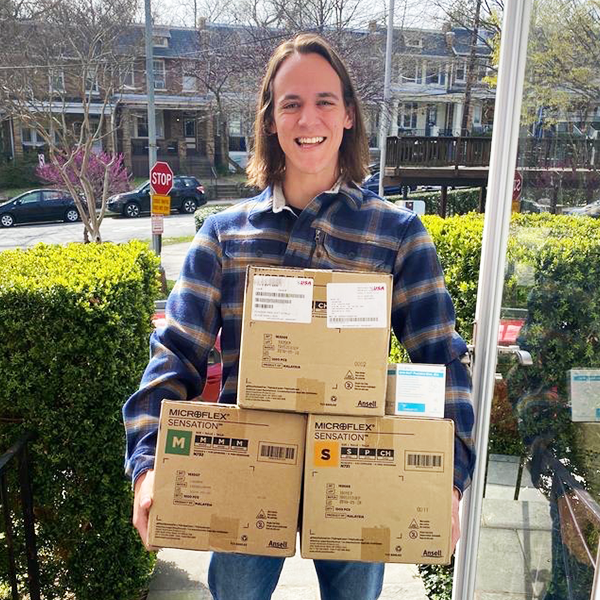
DC volunteer Dave Saxon (M’22) reached out to his research lab run by GU assistant professor Tingting Wang, PhD, for a donation. 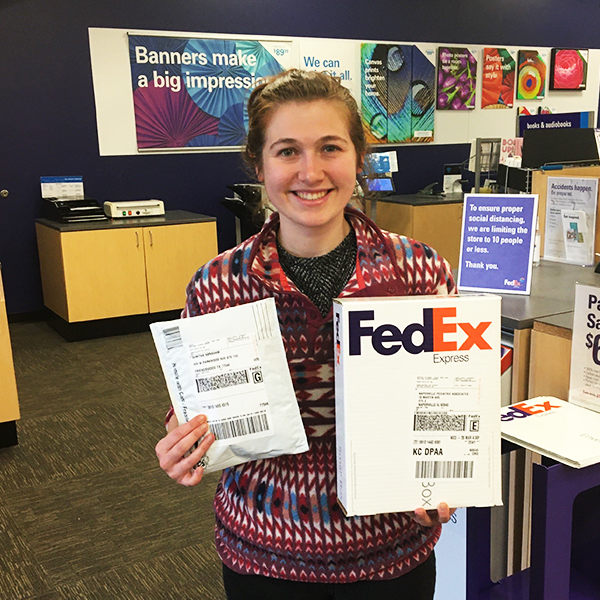
Melissa Baker (M’22), who works as MedSupplyDrive’s website, finance and DC regional coordinator, shipped N95 masks to nurses at a hospital in Illinois who did not have access to them and to a physician in Texas who had been reusing the N95 mask he had. 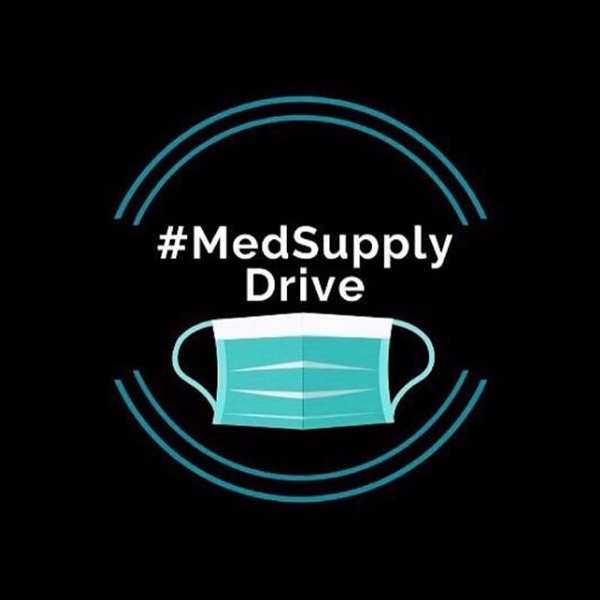
MedSupplyDrive has mobilized a national student-led movement to support those on the front lines of the pandemic response.
Connecting With the Clinical Reality
Debjeet Sarkar, MD, an emergency room attending physician at Johns Hopkins’ Howard County General Hospital, has advised the MedSupplyDrive team. Formerly a clinical assistant professor at Georgetown, Sarkar has kept in contact with Day and helped brainstorm the direction the movement could take.
He strives to connect the students to the clinical reality on the front line of the pandemic. As the New Orleans region began to experience a surge of cases, for example, Sarkar encouraged the students to mobilize MedSupplyDrive’s resources in that area for the next week.
A former Army physician who served in Iraq and Afghanistan, Sarkar hopes the experience of setting up MedSupplyDrive might drive home the need to prepare for the worst-case scenario.
“Whether it’s disaster relief after a hurricane or a tornado or a pandemic like this, to some degree the preparation is the same. Not everyone is going into emergency medicine, but whatever field they choose, they will have to prepare their own areas to deal with disasters,” Sarkar said.
Above all, MedSupplyDrive has offered students a lesson about pivoting toward something positive when it feels like a door has closed.
“This experience empowers us to continually listen to and learn about the needs of our communities and organize ways to address them,” Syed said. “That’s something we will all have to do in the future as physicians, so the fact that we have an opportunity now to incorporate that into our professional identities is really meaningful.”
Follow the progress of MedSupplyDrive on social media via Twitter, Facebook and Instagram.
Lauren Wolkoff (G’13)
GUMC Communications
